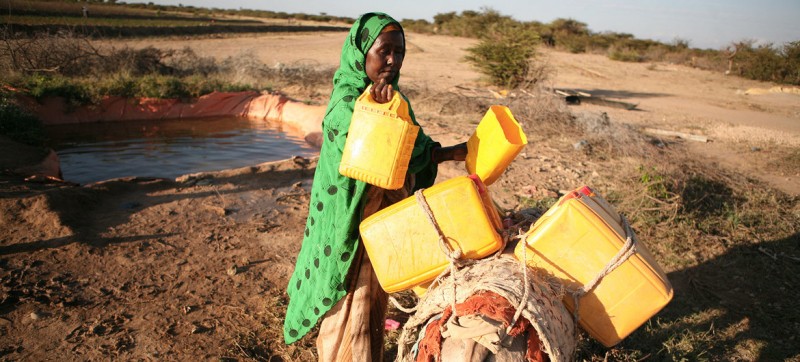Somalia’s drought has left more than two million people facing severe food and water shortages. With about 2.3 million people already suffering with serious water, food and pasture shortages in Somalia, a rapidly worsening drought could lead to an “extreme situation” by April next year. The warning comes from the United Nations and the Somali Government. Climate projections show that the country is facing a fourth consecutive failed rainfall season. In a joint statement on Friday, the organizations said it is imperative to act now to prevent a slide into the kind of drought and even famine conditions experienced in previous years. So far, nearly 100,000 people, especially in central and southern areas, have abandoned their homes in search of food, water and pasture for their livestock. The lack of access to safe water and sanitation has also heightened the risk of water-borne diseases. Across the country, the number of people who need assistance and protection is forecast to rise by 30 per cent, from 5.9 million to about 7.7 million in 2022. Over 70 per cent of all Somalis live below the poverty line. UN Deputy Special Representative of the Secretary-General in the country, Adam Abdelmoula, said that “a severe storm is brewing in Somalia.” “Those affected have already endured decades of conflict, climatic shocks and disease outbreaks”, said Mr. Abdelmoula, who also acts as Resident and Humanitarian Coordinator. Conflict and drought have led to food shortages in many parts of Somalia., by © WFP/Kevin Ouma Local communities, the authorities and the UN are ramping up response to address these needs. But critical response sectors like water, sanitation and hygiene are only 20 per cent funded. With one month remaining in the year, the 2021 Somalia Humanitarian Response Plan is only 66 per cent funded. In response, the UN Central Emergency Response Fund (CERF) is allocating $8 million and the Somalia Humanitarian Fund is making a reserve allocation of $6 million. Somalia is on the frontline of climate change and has experienced more than 30 climate-related hazards since 1990, including 12 droughts and 19 floods. The frequency and severity of climate-related hazards is also increasing. The Federal Minister of Humanitarian Affairs and Disaster Management, Khadija Diriye, said that families are losing their livestock, a key source of livelihood, and may starve to death in the coming months. “I am particularly worried about children, women, the elderly and disabled people who continue to bear the brunt of Somalia’s humanitarian crisis”, she said. Humanitarian aid

Growing risks
The World Organization for Development has been endowed with consultative status with the UN ECOSOC since 2014. The World Organization for Development, which has consultative status wich the UN ECOSOC, develops and implements Global Initiatives to achieve the UN Sustainable Development Goals.



